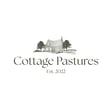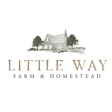
Failing & Succeeding at Homesteading w/ Devin Rose
On this interview, Mathew met with Devin Rose, author of Farm Flop: A City Dweller's Guide to Failing on a Farm in Two Years Or Less. This is a hopeful and cautious interview and one which will hopefully be of great inspiration as you consider your current and future homesteading goals.
Are you looking to order garlic for your homestead this year? At Little Way Farm and Homestead we sell a hardneck variety of garlic known as "Music." You can find availability and shipping information at our website - littlewayhomestead.com.
Do you have a great homesteading story to share? Send us an email at hello@littlewayhomestead.com. Let us know!
For more information about Little Way Farm and Homestead including the farm, podcast, and upcoming events, check out https://www.littlewayhomestead.com/
For media inquiries, advertising, speaking requests, guest referrals, consulting and more - email us at hello@littlewayhomestead.comHow to Fail at Homesteading & Keep Going w/ Devin Rose

